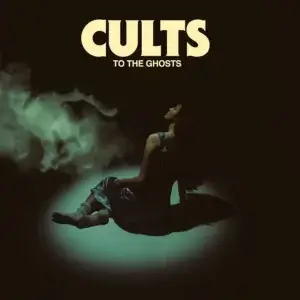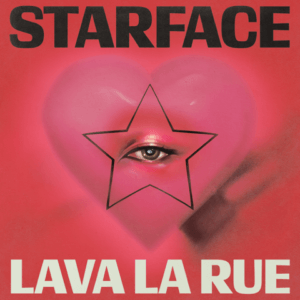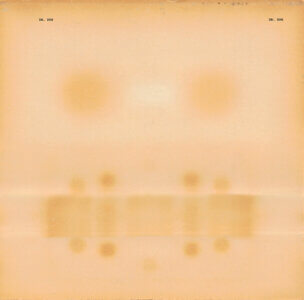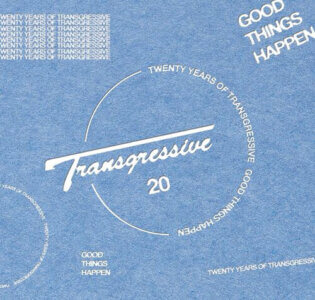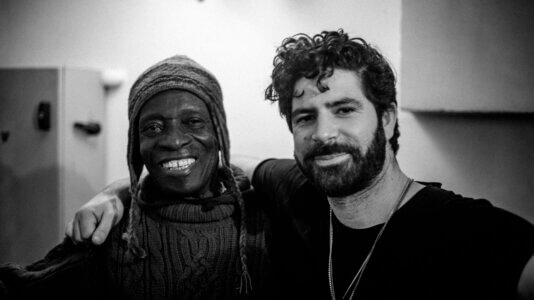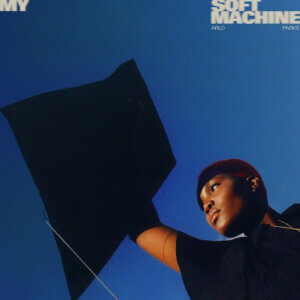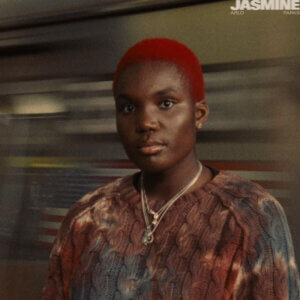The Waeve Are Only Just Beginning
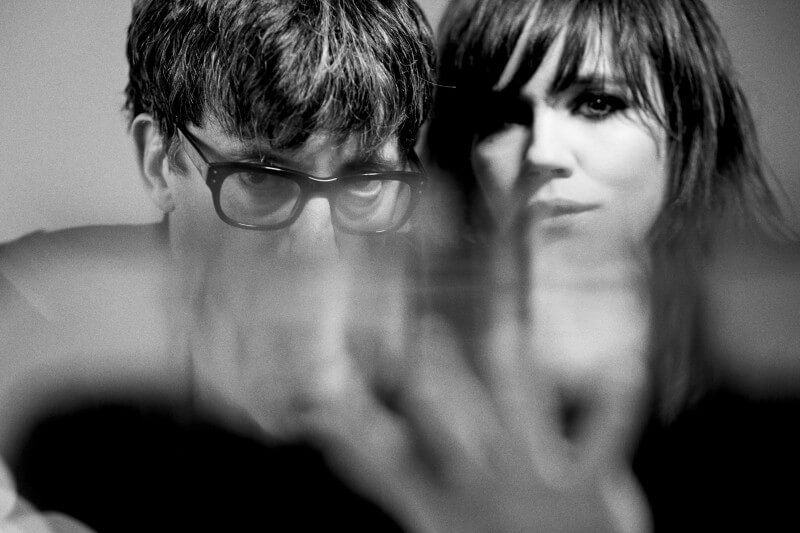
“It was like I was Nancy Sinatra and Rose was Lee Hazlewood,” laughs Graham Coxon. He uses this analogy to describe the artistic dynamic between him and Rose Elinor Dougall during the making of their excellent self-titled debut as The Waeve.
The comment comes towards the end of our mid-morning Zoom conversation, while Coxon, sitting beside his bandmate and partner in their home, is bouncing their young baby in his arms. The pair are extremely charismatic throughout our chat, in spite of Coxon admitting to feeling as though he’d been “hit by a 7 month old truck” following a somewhat sleepless night with their newborn.
In a relatively short space of time – 3 years, to be precise – Coxon and Dougall have accomplished quite a lot both professionally and personally with this project. It’s not surprising that they should produce a record as musically accomplished and ambitious as The Waeve given their remarkable careers with the bands in which they cut their teeth (Blur and The Pipettes, respectively) and as solo artists. Separately, they have become known for their distinct approach and subsequent sound. Together, they have created something exceptionally special in this fruitful collaboration.
Perhaps listeners will be surprised by the sporadic application of quintessential Coxon guitar riffs across the ten songs that make up their debut LP. Instead, he picked up another instrument as a secondary mode of self-expression: “The saxophone became kind of like my voice,” Coxon says. Across several of the songs, notably the sophisticated “Sleepwalking” and unsettling “Kill me Again”, the brass accompaniment shines alongside Dougall’s captivating vocal performances which so often heralds the late Trish Keenan of Broadcast, whose eerie interpretation of electronically inclined psychedelic-pop is also present, throughout. Furthermore, there’s an undeniable cinematic quality to their arrangements (most of which steadily unfold over 5 minute-long periods) which adds to the heightened emotions expressed musically and lyrically. An Angelo Badalmenti-like wooziness emanates from the emotive guitar melody on the beautifully somber “Alone And Free ” which culminates in an enveloping string accompaniment.
And while that tonal lushness abounds in The Waeve’s music, they were in fact influenced by far more traditional sources such as English folk music. In this instance, it helped the duo come to terms with their British identity during a culturally and politically challenging period for the nation. A glance at the tracklist, not to mention the spelling of their band name, indicates that the duo were, from the offset drawn to the sea.
“The sea metaphor came about so unintentionally,” Dougall notes when asked about its influence on The Waeve. “You know, we’re living and making music during a time where we’re grappling with our English identity and what that means, in many respects. I think it’s fair to say that Graham and I are both very English musicians in many regards; we both sing in our accents and for The Waeve, we were really drawn to the tradition of English folk music which really inspired the songs.”
Tonally, this is perhaps most prominent on “All Along”, one of the many deftly arranged moments on the record, while songs such as “Drowning” and “Undine” conjure the various dangers (mythological and physical) of water. “There are so many folk songs about how the sea can be really brutal and I’ve always loved the coast; its surrounding scenery and different landscapes,” Coxon says, developing on Dougall’s assessment of the strong thematic current. “However, with these songs we were inspired by those landscapes but not in a ‘let’s go to the beach and each fish and chips’ kind of idyllic way, it was more so in a way where we were looking at how treacherous the sea can be.”
There are several instances where their often complex and intricately textured compositions evoke the vastness of the sea and with that the changeable atmosphere of that unpredictable environment. Musically, this is realized through the aforementioned shrills of saxophone (masterfully played by Coxon) or chugging bass riffs which herald an unsettling sense of doom which perfectly sets the scene for lyrics that are equally stark in their essence. “I’m tired of being in love / I’m sick of being in pain,” Dougall intones on the album’s introspective opener “Can I Call You”, a few songs later their vocals are entangled on “Drowning”: “Hold on to me as the waters rise / Drowning again.” These are two examples of how reflective The Waeve’s lyricism is on this accomplished record.
This strand of self-evaluation was something that Coxon, in particular, had been immersed in prior to this project as he had been mining through various memories from his childhood through to his life in one of the biggest bands of the 90s Brit-pop era for his memoir “Verse, Chorus, Monster!”, published by Faber & Faber in October 2022. He details the process of developing the book and how this prepared him for The Waeve.
“I had 2 or 3 hours of conversations a week with somebody on Zoom for ages, starting in Autumn 2020. That’s how the book came together. Whenever I thought of something else or something funny would pop into my head, cos I didn’t want the book to be too bleak, I wanted there to be some funny bits, I’d just send the person I was talking to a voice note. I think it was important for me to tell these stories to someone instead of writing them. There was a lot of self-examination for me in 2020 and I think it was like that for a lot of people. Then, when Rose and I started working together, it was almost an extension of that self-examination. I think that’s why I thought it would be a really great idea and a wonderful opportunity to work with her. There would be a sort of support there to not have the whole weight of creativity to be solely on your shoulders. That was really nice because I think both of us were a little bit daunted by the prospect of making something new at that point. I hadn’t really done any work in 2020 and I only just agreed to do the charity show where Rose and I met because it was a scary prospect after not playing for a long while but I’m glad I did,” Coxon chuckles.
For Coxon and Dougall, the prospect of making music together followed quickly after this encounter. They exchanged emails over the Christmas period of 2020: “We have quite similar music tastes and it was great to find that out about Rose when we were sharing links,” Coxon recalls. Finding common ground with their musical tastes, they set out to write and record songs together. “I don’t think either of us really knew what anyone would make of [the album],” Dougall says when asked about the reception the album has received since its release earlier this year. “When it did come out, and in the weeks since, people have taken it seriously in an emotional way, which is really, really nice.” Coxon adds, “I guess we were really making [music] for ourselves in isolation without anybody in mind. So we never had that moment of thinking, ‘oh God, what if nobody likes it?’”
Anyone who has ever been in a band can appreciate how this dynamic can cause tension or conflicts, particularly during the songwriting process when ideas are being ironed out. For Coxon and Dougall, music provided a strong and immediate foundation for their relationship, as Dougall explains. “I feel like there was a sort of immediate musical connection with Graham. I’ve done a bit more collaborative stuff than Graham has over my career, so I think in some ways, I was actually better positioned to better understand how unusual it was how we were working. In the sense that we were working so fluidly, because I know what it’s like when it doesn’t work. You can go into these things with the best of intentions and it all looks great on paper and it’s going to be brilliant and then somehow the stars don’t align in the way they need to but that all happened with Graham.”
Dougall continues, “And then, you know, in that kind of environment, it can fast forward the intimacy that you find with someone. When that whole process is going on, everything else then moves at a thousand miles an hour. You get to know each other in a way that you might not in normal circumstances,” she smiles.
Outside of getting to know each other more on a personal level, the pair enjoyed exploring different musical avenues throughout the intensive recording sessions. “It was an amazing experience, really,” Dougall says enthusiastically about their collaboration, “I never had any moments thinking that things in the studio were going in a terrible direction. Of course, we had a few songs that we battled with that never quite got to where we wanted them to be for whatever reasons. So there were a few trials and errors but it wasn’t… I don’t know, I feel like it was quite easy to…”. Coxon picks up on Dougall’s train of thought, “I guess the album and the music we made is very explorative. With that, there were always going to be things that didn’t work, but for us most things actually just worked really well. And it was kind of mind-blowing how it all came together. In the space of 2 weeks we seemed to have made so much progress, and within those 2 weeks we had maybe only had 4 or 5 five sessions so things moved quite quickly.”
Coxon continues, “It was so fun to go all out with the arrangements and throw ideas in places to draw out a song and experiment. Of course, there were other explorative things that, in chunks, weren’t working and other things that we made that were a bit bonkers. I’d like to revisit those tracks and see if they were as bonkers now as I thought they were 2 years ago.”
In that, Coxon suggests a future for The Waeve with his declaration of excitement to revisit early explorations that didn’t make their debut. As our time together comes to a close and their baby continues to coo sweetly, when asked about the prospect of more releases from The Waeve, Coxon’s face illuminates as he considers the future of this project, “I have had two relationships now in music where they started as friendships and became something very special to me,” he says thoughtfully. “That was Damon [Albarn] and Rose, I can see there being many, many records and things to come from The Waeve.”
order The Waeve by Waeve HERE
Latest Reviews
Tracks
Advertisement
Looking for something new to listen to?
Sign up to our all-new newsletter for top-notch reviews, news, videos and playlists.


